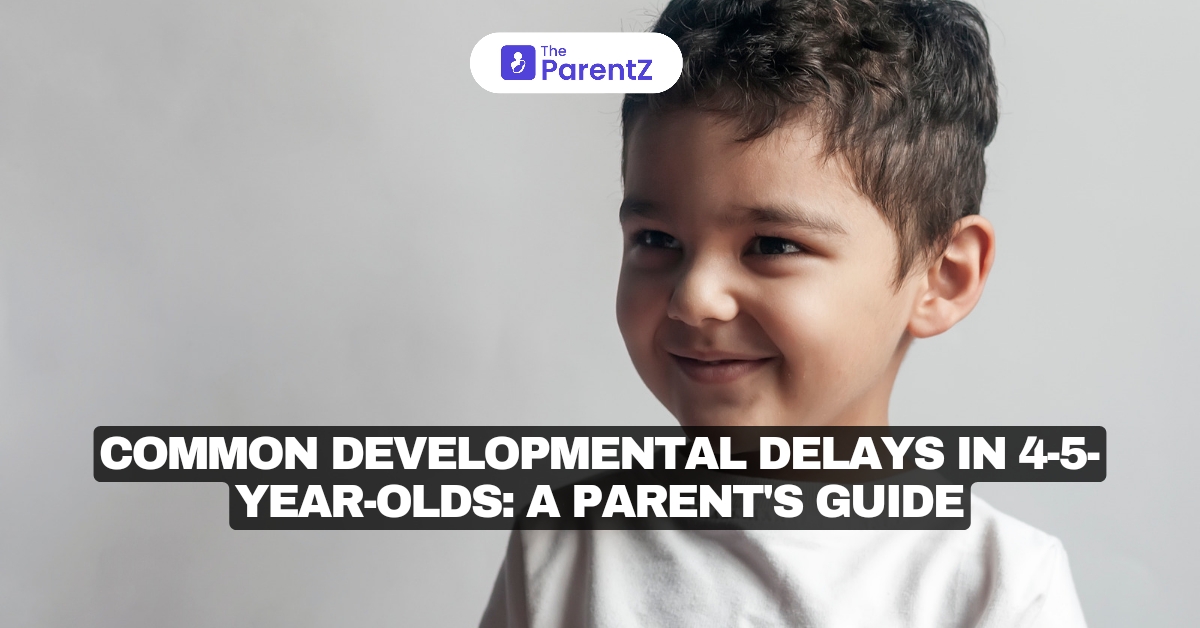It's a universal experience for parents to watch their child grow and reach developmental milestones. But what happens when your child seems to be lagging behind their peers? The fear and uncertainty that often accompany such situations can be overwhelming. You might question your parenting skills, worry about your child's future, or feel isolated in your concerns.
Before delving into the specifics, it's important to understand that developmental delays are more common than you might think. Every child develops at their own pace, and some may take a little longer to reach certain milestones. However, it's worth seeking professional advice if you notice persistent delays in multiple areas.
Recognizing the Signs of Developmental Delays
Developmental delays can manifest in various ways, affecting different areas of a child's growth. You may notice:
- Language Delays: Difficulty in speaking, limited vocabulary, or trouble in forming sentences. By age 5, children should be able to hold simple conversations and understand basic instructions.
- Motor Skill Delays: Challenges in gross motor skills (like running or jumping) and fine motor skills (such as using utensils or drawing). Signs may include difficulty balancing, poor coordination, or trouble with tasks that require hand-eye coordination.
- Social and Emotional Delays: Issues with interacting with peers, showing excessive fear or aggression, or a lack of interest in playing with others. Children may also struggle to express their emotions appropriately.
- Cognitive Delays: Difficulty in problem-solving, following directions, or understanding concepts like numbers and colors.
According to the CDC, approximately 1 in 6 children in the U.S. experiences some form of developmental delay, highlighting the prevalence of this issue.
Possible Causes of Developmental Delays
The causes of developmental delays can be complex and multifaceted. Some potential factors include:
- Genetic Conditions: Disorders such as Down syndrome or Fragile X syndrome can lead to developmental uncertainties. These conditions often affect multiple areas of development.
- Prenatal Factors: Complications during pregnancy, such as maternal drug or alcohol use, infections, or poor nutrition, can impact fetal development and lead to delays.
- Birth Complications: Lack of oxygen during birth or premature birth can also contribute to developmental challenges.
- Environmental Influences: Factors such as neglect, abuse, or a lack of stimulation in early childhood can hinder a child's development.
- Neurological Conditions: Conditions like cerebral palsy or autism spectrum disorders (ASD) can result in significant developmental delays that require
specialized interventions.
While some delays may resolve on their own, persistent delays often indicate a need for professional evaluation and intervention.
Managing Developmental Delays
For parents, the first step in addressing developmental delays is to seek an evaluation from a pediatrician or a developmental specialist. Early identification is crucial, as research shows that timely intervention can significantly improve outcomes for children with developmental delays. Steps for Parents:
- Observation: Keep track of your child's milestones and behaviors. If you notice persistent delays, document specific behaviors that concern you.
- Consultation: Speak with your pediatrician about your observations. They may conduct developmental screenings or refer you to specialists for further evaluation.
- Intervention Services: If a delay is identified, early intervention services can provide tailored support. This may include speech therapy, occupational therapy, or physical therapy, depending on the nature of the delay.
- Family Involvement: Engage in your child's therapy sessions when possible. Learning techniques to support your child's development at home can reinforce skills being taught in therapy.
- Support Networks: Connect with other parents who might be facing similar challenges. Support groups provide emotional aid and practical advice.
Conclusion
While developmental delays can be concerning for parents, it is essential to approach the situation with understanding and proactive measures. In many cases, these children can catch up to their mates with early intervention and support. By recognizing the signs, understanding the causes, and seeking appropriate help, parents can foster a nurturing environment that promotes their child's growth and development. Remember, you are not alone in this journey, and there are resources and communities available to support you and your child.








Be the first one to comment on this story.